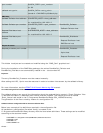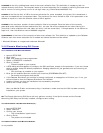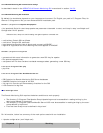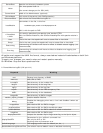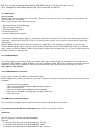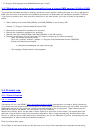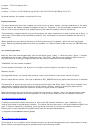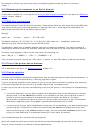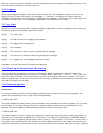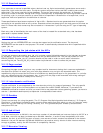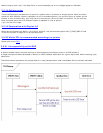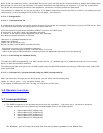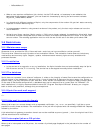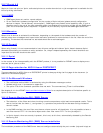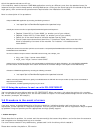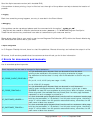
However, the print job will be rejected if none of the specified printers supports the additional options for the
print job that are contained in the command line.
3.5.6 Logging
When a same logging message is send many times consecutively, the message is written one time in the
logging file and for each occurrence of this message, a '.' is written in the logging file. When a different
message has to be written in the logging file, before this new message, the previous one is written again with
its number of occurrence: "The log message <MESSAGE> have been sent <X> times."
3.5.7 xp_alert
xp_alert is the binary executed when a logging message is generated or when a message is send to the user.
This binary receives the following arguments as input:
argv[1] .....The entity type
argv[2] .....The date & time of the logging/user message
argv[3] .....The logging/user message key
argv[4] .....The message
argv[5] .....The name of the entity which has generated the message
argv[6] .....The name of the function which has generated the message
argv[7] .....For logging only, the message occurrence number
A separator or a new line does not follow those arguments.
3.5.8 Clean up of directories at the start up
The first activation of a gateway, a server or a supervisor creates a sub-directory with the name of the
activated entity respectively under the directory "<XPRINT_PATH>/GW" resp. ".../SV" or ".../SP", on the host
where the entity is defined. This sub-directory is normally removed when the entity is deleted, if the host is
active at deletion time. If the host is not active when the entity is deleted, the sub-directory is removed at the
next start up of Xprint on that host.
3.5.9 Gateway options
Security options
o In order to make the security more flexible and authentication checks performed by the gateways, two
options can be specified in the "op" flag of the LOCAL gateways:
o "CHECK_DST=NO":
This value disables the check ensuring that the request is well intended to the receiver gateway. So, the name
of the receiver is no longer relevant, and then its network address remains the only identification of the
gateway. This option applied to GIP2 gateways provides an easier configuration way.
o "CHECK_SRC=NO":
This value disables the check verifying that the sender is well known and authorized to submit the request. In
other words, all requests are accepted even if the sender is not defined in the database as PARTNER gateway.
In the latter case, the gateway partner name is set to empty (f.i. job originator is in the form "!<user>host>").
This option is very interesting for intra-network or specific usage models (like in HV cluster environment) but
aware that this leads to a serious security lack (any domain knowing the receiver definition may send requests).



